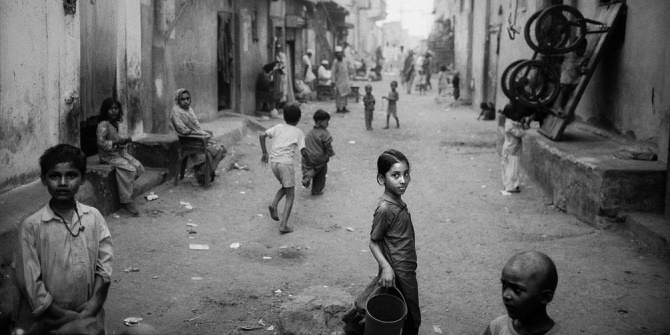At the LSE Pakistan Summit 2017, Tahera Hasan, Director of Imkaan Welfare Organization, joined a panel on Philanthropy and Institution-Building. Following the event, she spoke in depth about Imkaan’s mission and the broader issues of child abandonment in Pakistan.
Imkaan was established with the aim of addressing child abandonment and infanticide by creating a structured, compassionate support system for families before and after child placement. Drawing on her 22-year career in law, much of which focused on adoption, Tahera found significant gaps in how adoption was being handled in Pakistan. There was no formal adoption framework, only legal guardianship arrangements, and most existing systems lacked emotional and procedural safeguards for both children and adoptive families.
To design a more responsible approach, Imkaan followed international standards such as those laid out in The Hague Convention, adapting them to local needs. The organization first conducted two years of research in Machar Colony, one of Karachi’s largest and most neglected informal settlements. Here, healthcare was almost non-existent, and residents many from undocumented communities like the Bengalis and Burmese had minimal access to services.
From this groundwork, Imkaan launched its first mother and child clinic in 2014, providing essential healthcare in an area previously served only by unqualified practitioners. The clinic became a cornerstone of the organization’s broader child-centered strategy.
A key challenge in Machar Colony was the vulnerability of unsupervised children who spent their days on the streets. Recognizing this, Imkaan established Khel a safe recreational center aimed at getting children off the streets and into a secure environment. Initially chaotic, the space eventually transformed into a hub of positive social interaction. With time, the children began showing responsibility, ownership, and care toward one another and the space.
Khel has since evolved to include structured activities such as sports, gymnastics (for both boys and girls), arts, and informal education in literacy and general knowledge. Encouraged by community demand, Imkaan added an educational component, despite not being set up as a formal school.
When discussing the reasons behind child abandonment, Tahera noted that illegitimacy rather than poverty was the primary driver. She emphasized that both boys and girls are being abandoned, and that societal shame plays a major role. The absence of national data makes it difficult to quantify the problem, but through her legal and professional network, Tahera observed that abandonment cases are increasing.
While abortion is illegal in Pakistan, contraception is not; however, cultural and religious attitudes limit its use. Imkaan incorporates family planning awareness into its programs, though social resistance remains a barrier.
Tahera believes the long-term solution lies in policy reform. Philanthropy can only go so far, and while NGOs like Imkaan play a vital role in filling gaps, the real transformation requires government involvement. Imkaan is working to build connections that may lead to greater policy influence, recognizing that sustainable change comes from marrying expertise with institutional support.
Read the original article on: lse.ac.uk

